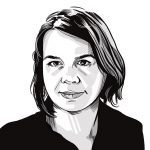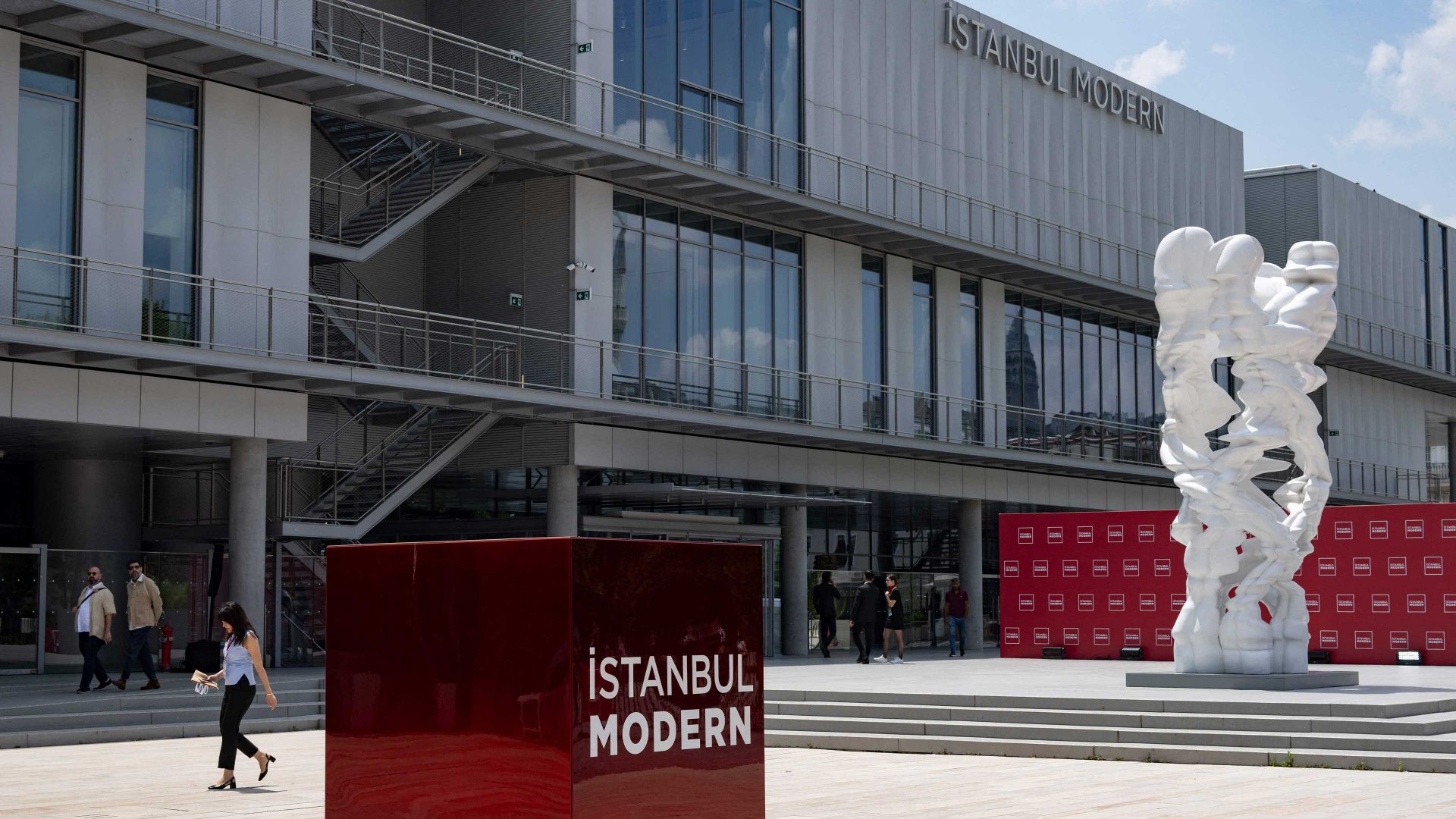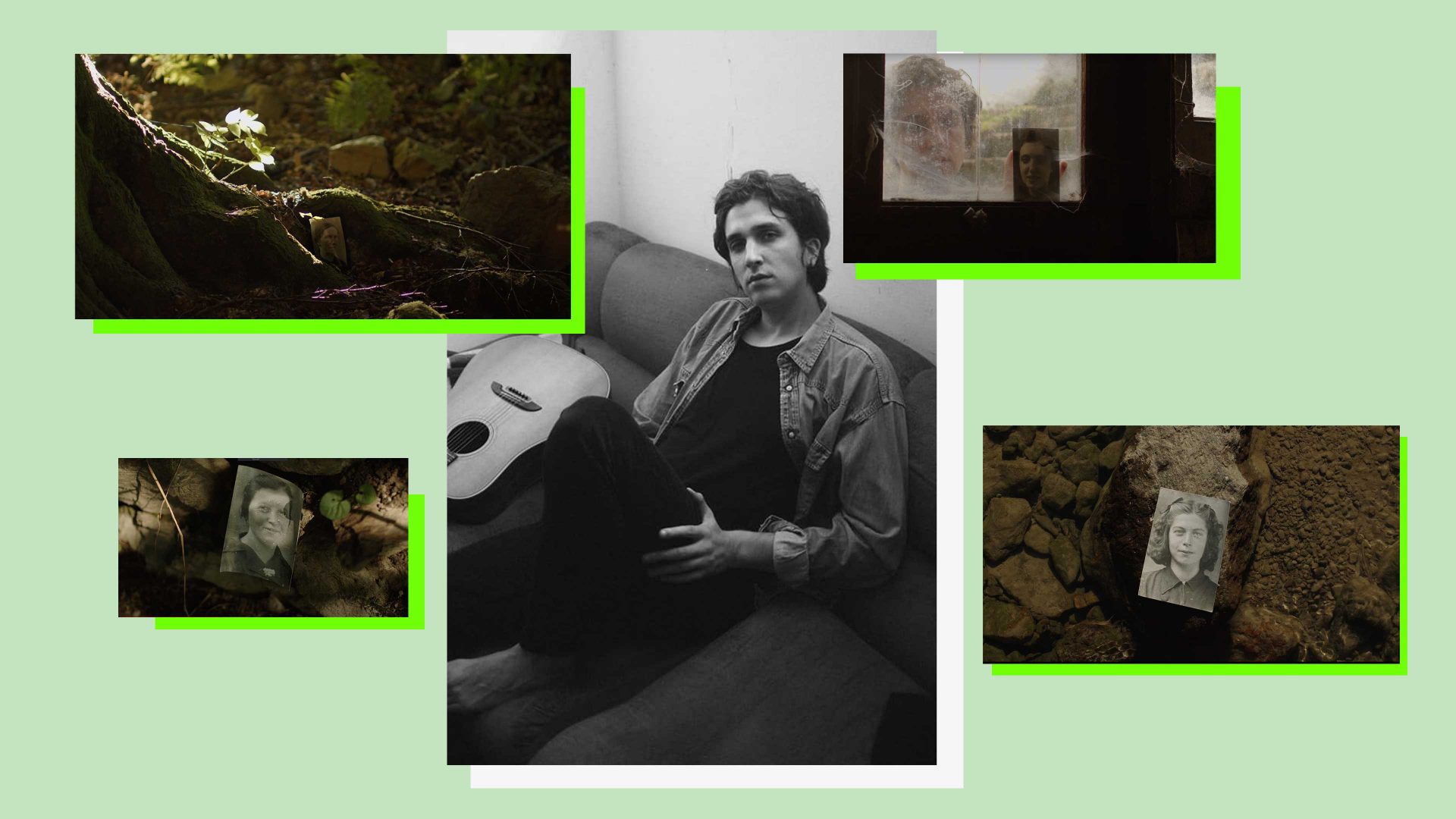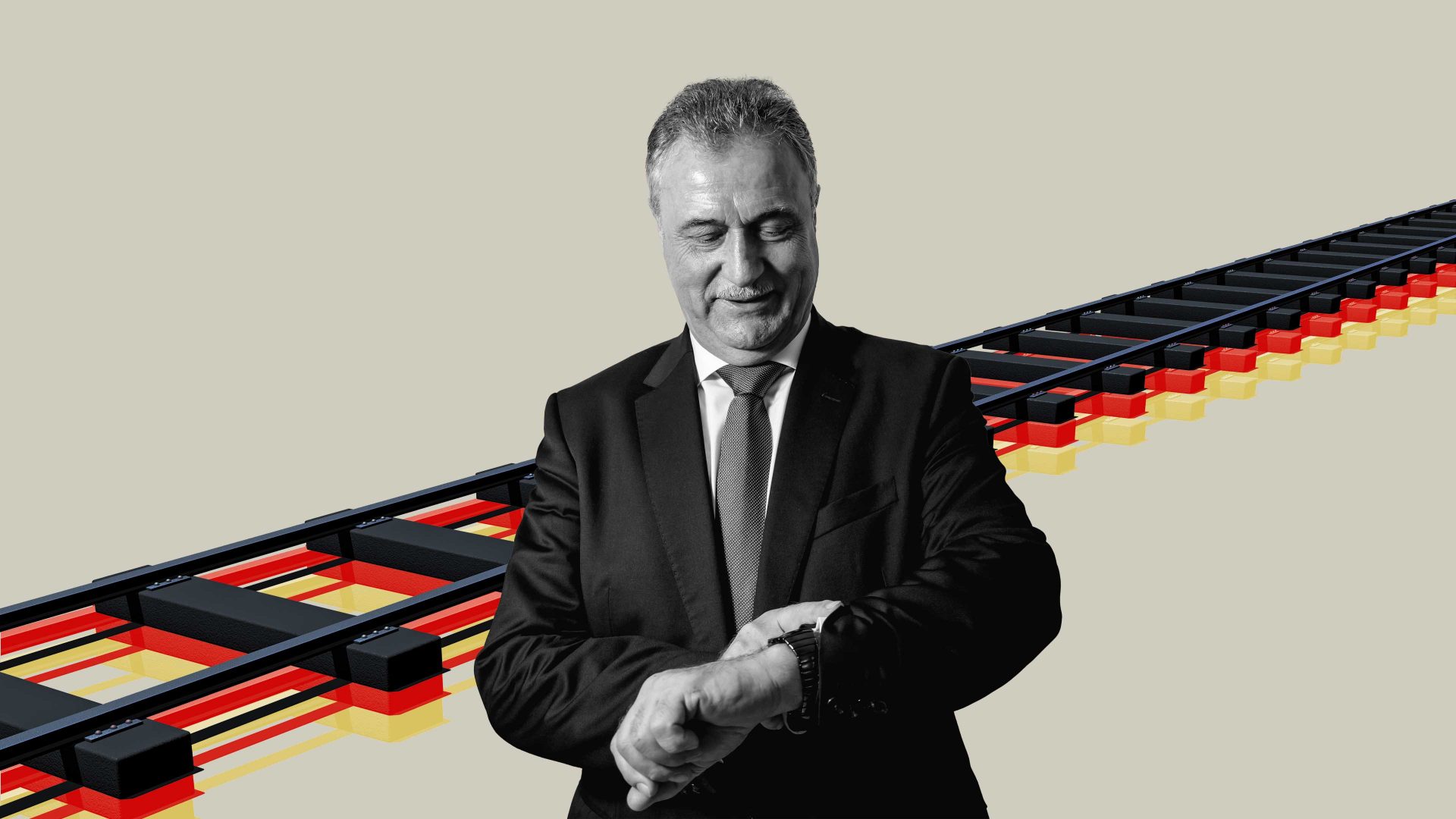Istanbul’s cultural scene is as intriguing and labyrinthine as its streets. But watching its slow implosion over the past six months has been an eye-opener.
The trouble came to a head in January with the resignation of Istanbul Biennial curator Iwona Blazwick. As a result, the 18th edition, scheduled for this autumn, has been postponed until 2025; meanwhile, the recently reopened Istanbul Modern museum of contemporary art is still without a director general, following the resignation of Levent Çalıkoğlu last year.
There’s not much mystery about the source of the problem at Istanbul Modern: President Erdoğan’s opportunistic “opening” of the museum last May was deeply inauspicious. In providing him with a mid-election platform, it highlighted the museum’s entanglement with Erdoğan, not least as a beneficiary of his public-private partnership policies. Critics say the museum’s prime location on the Bosphorus, and the funding of its construction as part of the controversial Galataport complex, meant cooperation with the government, and political compromise.
Compromises are certainly evident in the museum’s anodyne opening display, and the museum insists that its acquisitions policy is not steered by any kind of external pressure or interference. And yet reports in Millyet speculated that Çalıkoğlu’s departure was due to “a difference of principle regarding the purchase of works at Istanbul Modern”.
Over at the Biennial, a more complicated picture emerged with news that its organising body, the Istanbul Foundation For Culture and the Arts (IKSV), had turned down the curator recommended by its own advisory board, Defne Ayas. Instead, it appointed advisory board member and former director of London’s Whitechapel Gallery Iwona Blazwick, triggering the resignation of three other panel members, and dark mutterings about the influence of hidden actors.
It’s not just the comings and goings that make it perplexing. İKSV is a champion of all the arts in Turkey, and a significant philanthropic and policy-making organisation.
İKSV’s track record of robust independence makes it all the more surprising that Defne Ayas may have been “judged too risky by the foundation”, following the 2015 Venice Biennale, when she curated an exhibition by Turkish-Armenian artist Sarkis that alluded to the Armenian genocide.
Caution is hardly unreasonable under a regime that imprisons its detractors. Turkey is experiencing a rise in homophobic attacks, police raids, arrests and violent protests against progressive art venues, whipped up by the AKP’s manifesto of intolerance. Inevitably, it has had a chilling effect on culture and the arts, with even the most courageous of art workers exercising self-censorship.
Those who are prepared to speak, (now rarely on the record) make it clear why they feel so reticent. In addition to the fear of being targeted by “he who shall remain nameless”, one insider told me that the solidarity that once fortified Istanbul’s arts scene is increasingly fragile. There is infighting, they say, where once there was mutual support.
The consequences should not be underestimated. In Turkey there is no such thing as a state institution, and the checks and balances that in Britain get rubbished as “red tape” do not exist.
In the spirit of contradiction that reigns in Istanbul, the city’s art community – intimidated, demoralised, silenced, on the one hand – has done its best to puncture the blanket of institutional failure, publishing an open letter claiming “that İKSV has failed to maintain a transparent, accountable, ethical, and inclusive practice”, and demanding clarity. When the response came, many people thought it was inadequate. Four artists withdrew from the forthcoming Biennial, and protests were staged. The first of two forums was held on January 7, where more than 100 people spent four hours in discussion.
If İKSV’s communications have been clumsy, they have at least shown a willingness to put things right. But Istanbul Modern shows no signs of wanting dialogue, still less transparency – for an institution given over to self-expression, there is a dark irony in that reticence.
Florence Hallett is a freelance art writer




